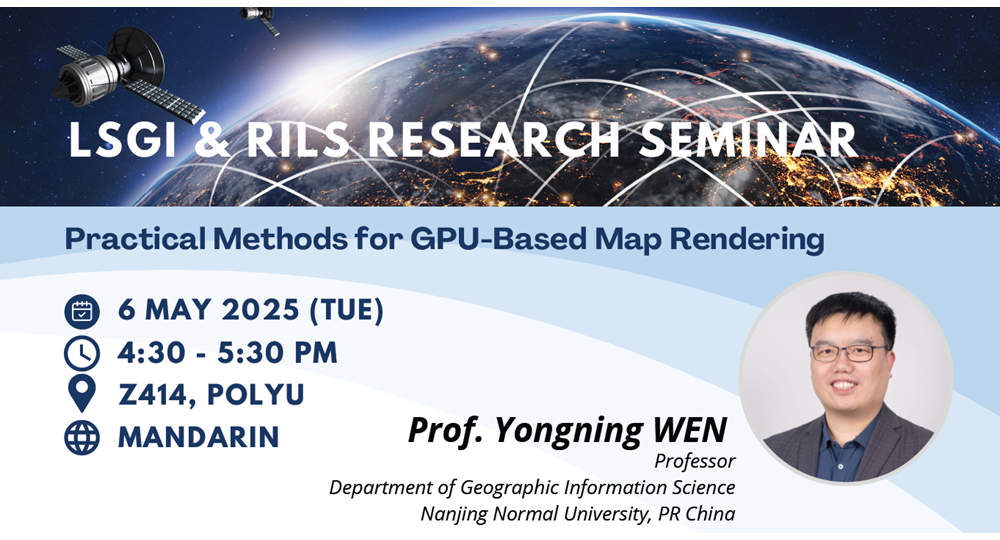Practical Methods for GPU-Based Map Rendering

-
Date
06 May 2025
-
Organiser
Department of Land Surveying & Geo-Informatics (LSGI) and Research Institute for Land and Space (RILS)
-
Time
16:30 - 17:30
-
Venue
Z414 Map
Speaker
Prof. Yongning WEN
Enquiry
Mr Jimmy Kwan (852) 2766 4350 jimmy.lh.kwan@polyu.edu.hk
Remarks
Moderator: Prof. Xintao LIU, LSGI
Summary
The presentation focuses on GPU-accelerated map rendering techniques. While GPUs have evolved over decades to deliver superior efficiency, they are inherently designed for 3D scene rendering and are not naturally suited for 2D/2.5D map graphics. Specialized techniques are required to meet cartographic representation demands. This presentation will highlight three key research contributions in GPU-accelerated cartographic rendering: (1) A novel functional rendering method for line symbols that simultaneously addresses cross-tile width consistency and enables multisymbol single-pass rendering; (2) An advanced texture-reinterpretation technique achieving scalable anti-aliased point symbol rendering and large-scale dynamic flow field visualization; and (3) A specialized underwater terrain rendering module featuring modern platform integration and GPUoptimized bathymetric contour generation. These developments significantly advance the state-of-the-art in computational cartography.
Keynote Speaker
Prof. Yongning WEN
Professor
Department of Geographic Information Science
Nanjing Normal University, PR China
Prof. Wen Yongning is a professor at the School of Geography, Nanjing Normal University, China, where he serves as the Director of the Department of Geographic Information Science. His primary research areas include virtual geographic environments, geographic model resource sharing and services, and GIS algorithms and platforms. He is also a leading figure in the OpenGMS team and played a crucial role as a core architect in its platform design, contributing significantly to the development of this collaborative geographic modeling open-source framework. His work in this field was recognized as one of the Top Ten Research Progresses in Geoscience in China in 2022. He has led three projects funded by the National Natural Science Foundation of China (NSFC) as PI.




